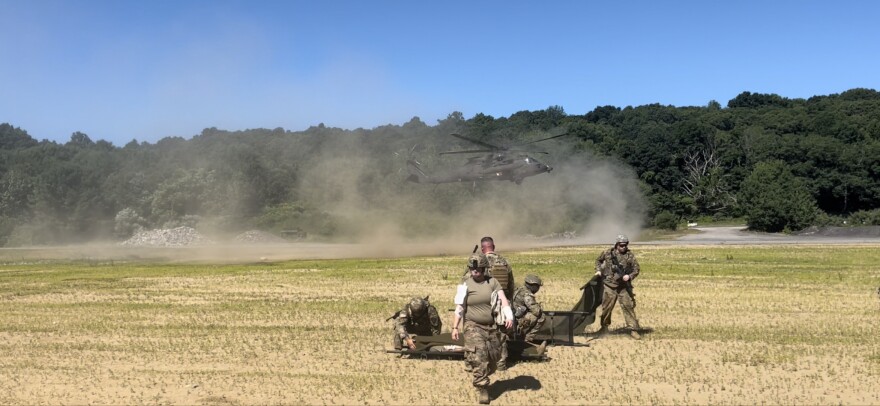The Connecticut National Guard’s 169th Regional Training Institute has been conducting combat medic training this week at its facility in East Lyme.
Sgt. 1st Class Megan Authier, who is in charge of the training, said it’s made as realistic as possible for the students.
“So we try and simulate it as much as possible. So, we do provide war sounds in the background and the helicopter does provide that realism as well with the dust storm that it sort of kicks up and the noise that occurs,” Authier said. “All again for the sake of trying to get as close to realistic as possible to ramp up those stressors that a medic may encounter in you know a real theater of operations.”

The aim of the training is to provide life-saving tactical combat casualty care. The Guard members make patients ready for evacuation by land or air ambulance, and treat combat injuries, like bullet wounds.

The students will complete their third and final phase of the course. It will grant them status of 68W (pronounced as sixty-eight whiskey using the NATO phonetic alphabet), the U.S. Army military code for a type of combat healthcare specialist.
“In the hospital, of course we have imaging. We have blood products. We have medications, extensive medications,” said Regina Farrington, an emergency and intensive care nurse from Colchester who is taking the course.
“But what we’re doing, and what we’re being trained to do, is to take care of emergent and urgent life situations that are ultimately life threatening and a multitude of injuries that are sustained in the battlefield are things that we’re taught to combat and help them sustain life so they can continue on and to get out of here.”





